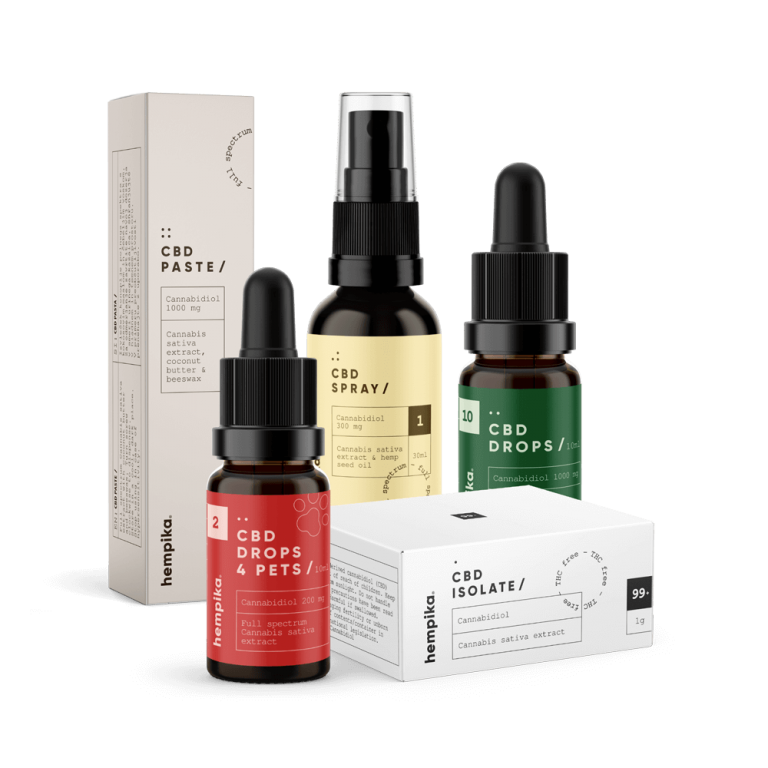Allergies are a widespread medical condition. People all over the world and of different races experience them. Allergens like pollen or dust can cause an overreaction in the body of the people allergic to them.
There are many ways that people exhibit this reaction from the immune system. Some of the most common are hives, nasal congestion, swelling, running noses, and in extreme cases, anaphylaxis. Those who suffer from allergies know how uncomfortable the situation can get.
Preliminary results from some studies are starting to show how CBD can be beneficial with allergies. It does this by preventing the release of histamines, which causes those symptoms. It also doesn’t have drowsiness as a side effect like many other allergy medications do, making it a favorite.
What are allergies and their causes?
To understand how CBD can help with your allergies, it is vital to know how allergies work. Allergies are the reaction of your immune system to something that it considers harmful. Your immune system creates antibodies called allergens to help fight them off.
It is these allergens that cause the reactions termed allergies. Most times, the immune system produces allergens in excess. This triggers inflammatory responses from the body resulting in those annoying symptoms.
People all over the world are allergic to many things. Some of the common ones include pollen, food, mold, latex, animal dander, and insect venom. While exposure to these wouldn’t affect others, the reaction could be dangerous and extreme for allergic people.
Types of Allergies (And Symptoms)
Allergies are often classified by the factors causing them. Some common kinds include pollen allergy, food allergy, latex allergy, animal dander allergy, mold allergy, etc. While all of these allergies have some common symptoms, there are differences too. Below are some common allergies and some of their symptoms.
Pollen Allergies
Being allergic to pollen is very common. There are many people whose immune systems react when they contact pollen grains. This can be a problem because pollination is how most flowering plants fertilize. The grains are transported by air.
Pollen allergy is also known as hay fever or seasonal allergic rhinitis. Hay fever symptoms include sneezing, red eyes, nasal congestion, sneezing, itchy and runny nose.
Food Allergies
Usually, food allergies affect babies, but they can also show up at any age. They occur when your body has antibodies to a particular food. This could be nuts, eggs, fish, and nuts. Allergic reactions can be very severe and happen in minutes.
Symptoms of food allergies include hives, nausea, vomiting, diarrhea, difficulty breathing, mouth swelling, coughing, and dizziness.
Mold Allergies
Just like pollen allergies, mold floats around in the air too. It is a tiny fungus that has spores and can be found in damp places. When the weather is hot and humid, mold is amplified, and those allergic to it can get no rest.
The symptoms of mold allergies are irritated eyes, coughing, wheezing, running nose, nasal congestion, sore throat, etc.
Latex Allergies
Latex allergies are not too common. However, healthcare practitioners are often victims because they come into contact with latex a lot. It is used in stethoscopes, gloves, syringes, and even dental dams. People who have had several surgeries may also discover that they are allergic.
Symptoms of a latex allergy include hives, skin rash, irritated eyes, wheezing, and itching.
Animal Dander Allergies
Dander is the dead skin on animals which they shed regularly. Those allergic to these react to a particular protein that animals secrete, which can be found in the dander. You can also find it in the animal’s saliva and urine, but dander is what triggers many reactions.
Animal dander allergies come with many symptoms. They include itchy red eyes, running nose, watery eyes, facial pain, coughing, and sneezing. You could also experience nasal congestion.
Insect Venom Allergies
Insect bites can hurt. Being allergic can make matters more complicated, however. Insects that people commonly react to include bees, yellow jackets, and wasps. Symptoms include hives, itching, vomiting, diarrhea, swelling, difficulty breathing, and dizziness.
What Is CBD
CBD (Cannabidiol) is a chemical compound found in the cannabis Sativa plant. It is non-intoxicating and won’t give you a high or alter your mental state. Studies have shown that CBD could effectively treat allergies because of its anti-inflammatory properties.
How Can CBD Help with Allergies?
CBD helps with allergies in two wonderful ways. The first is that it can help prevent cells from releasing histamines. They are what lead to sneezing, coughing, and itching. Fewer histamines mean less of those reactions.
Studies have also shown that CBD has anti-inflammatory properties. This is the second way that it can help with allergies. CBD can help relieve symptoms like nasal pressure, breathing difficulties, stuffiness, and pain.
So, if you’re asking, “Does CBD help with hay fever allergies?” The answer is yes; CBD can be very helpful. Sufferers will find relief from nasal congestion, sneezing, itchy, and running nose. Finally, pollen season can stop being such a nightmare.
Can CBD Oil Cause Allergies?
People with allergies to cannabis will find that they will exhibit the same with CBD oil. Symptoms of this allergy to CBD are similar to that of pollen allergies. They include sneezing, running nose, itchy eyes, etc.
Although the World Health Organization (WHO) considers CBD oil pretty safe, it is possible to experience some side effects. So, it is usually advisable to check that you are not allergic to any of the ingredients.
Besides that, research has shown that there are low side effects when it comes to CBD oil. This is why many choose it for allergies. There is also no known dependency effect to using CBD products.
Best CBD For Allergies
When deciding on a product to help with your allergies, it’s usually best to choose the right one for you. This depends on the symptoms you’re using it for and could also be a personal preference. Below are some different types of CBD oil that you can choose from:
Full Spectrum: The full-spectrum CBD drops contain all of the compounds in the cannabis plant, including THC (less than or 0.3%)
Broad Spectrum: Broad Spectrum CBD oil has all the other compounds in the cannabis plant without THC.
Isolate: CBD Isolate is 99% pure Cannabidiol.
Top ways to use CBD oil for allergies include sprays, drops and pastes. The right one to choose is the one that brings the fastest relief to your symptoms. Here at Hempika, we’re consistently researching the best ways to introduce the products for better and quicker relief.
<š>That’s why we offer quality assured and certified organic products that have been tested at a third-party lab. We’re licensed to produce CBD oil, and you can trust whatever product you get from us, whether it’s the paste, spray, or drops.
Other Remedies for Allergies
You can combine other remedies and CBD to help reduce the nagging symptoms of your allergies. They include:
- Immunotherapy
- Antihistamines
- Acupuncture
- Probiotics
- Vitamin C
- Dehumidifiers
- Nasal Sprays like Flonase
Frequently Asked Questions About CBD For Allergies
Can You Have A Bad Reaction to CBD?
People allergic to cannabis can have reactions like dry mouth, diarrhea, a reduced appetite, and fatigue. CBD can also interact with medication like blood thinners. Other than that, using only high-quality CBD products like the ones we have at Hempika will give you no problems.
Can You Be Allergic to Hemp?
Yes, although not prevalent, some people are allergic to hemp. Allergies to hemp present similar symptoms like coughing, wheezing, running nose, nasal congestion, and sore throat like pollen allergies. People with these can use products like antihistamines to get relief.
Can CBD Cause Itching All Over the Body?
Only a tiny percentage of users report itching as a symptom after using CBD. There is also a chance that this itching is not caused by CBD itself but other natural CBD oil ingredients that the person could be allergic to.
Can CBD Cause Skin Problems?
The only studied skin reaction to CBD is to a synthetic form of CBD known as Epidolex. There are no known issues with organic derived CBD products like the ones we produce at Hempika. This is because we test for purity and potency.
Can Hemp Oil Cause A Skin Rash?
Organic hemp oil has no known side effects by itself. As long as you are not allergic to any of the ingredients, you will get no skin allergy rash. It’s always advisable to try out a little of any new product first to ensure you aren’t sensitive to it.
Is CBD Oil Good for Allergies and Asthma?
CBD oil is great for allergies and has barely any side effects. It contains minimal THC, so you won’t get high and can pass a drug test while on it. There are studies showing that cannabis can be used in the treatment of asthma.
Can You Take CBD Oil with Antihistamines?
Yes, combining other allergy remedies with CBD is possible and could help ease your symptoms faster. There is no known cure for allergies, but you can reduce your discomfort by combining CBD with other aforementioned regimens and avoiding the triggers.
Does CBD Oil Help Allergies?
Yes, CBD oil helps with allergies in two known ways. The first is that it has anti-inflammatory properties. This can help with allergy symptoms like nasal congestion and facial pressure. CBD also stops cells from producing histamine, which causes those over-the-top symptoms.
Does CBD Have Antihistamine Properties?
Studies have shown that CBD affects mast cells the same way that antihistamines do. This means that while not stopping your immune system’s response to harmful bacteria and viruses, it blocks the response to histamine. Your allergy symptoms will reduce as a result of this.
Conclusion
You can use CBD to get relief from the symptoms of your allergy. Although studies are still in the preliminary stages, many people report that it is helpful. You won’t get many of the side effects that come with other allergy medications.
As with other remedies, it’s best first to determine your symptoms and then choose a product that benefits you. You should also make sure that you use only tested high-quality CBD products produced under the best of conditions.
Author: S. O.
Source(s):
https://www.ncbi.nlm.nih.gov/pmc/articles/PMC2828614/
https://www.researchgate.net/publication/272373349_Cannabidiol_CBD_and_its_analogs_A_review_of_their_effects_on_inflammation
https://pubmed.ncbi.nlm.nih.gov/30481497/
https://www.ncbi.nlm.nih.gov/pmc/articles/PMC1138953/
https://www.healthline.com/health/cbd-for-allergies
https://www.mayoclinic.org/diseases-conditions/allergies/symptoms-causes/syc-20351497
https://en.wikipedia.org/wiki/Allergy


